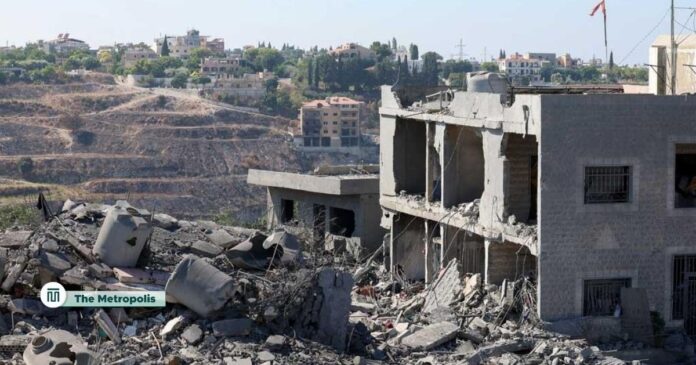Friday’s attack rattled the capital of Lebanon and sent billowing clouds of smoke over the city, according to the Israeli military, which said it had targeted Hezbollah’s main office in the southern suburbs of Beirut.
An Israeli source told Axios, a news outlet, that the Israeli military was assessing whether or not the strike hit Sayyed Hassan Nasrallah, the leader of Hezbollah.
Reports from Iran’s Tasnim news agency and a Hezbollah-affiliated source confirmed to Reuters that Nasrallah is still alive. A senior security official in Tehran told Reuters that Iran was verifying his status.
Israel’s conflict with the heavily armed Hezbollah has escalated significantly, as reported by Iran-backed Hezbollah’s al-Manar television. The multiple strikes destroyed several buildings and injured numerous people.
According to a TV station correspondent, the attack had left many large craters and damaged many surrounding buildings. Al-Manar’s live feed showed search and rescue teams scurrying over concrete and protruding metal.
The Israeli military claimed to have carried out a “precise strike” on Hezbollah’s headquarters in Beirut, claiming to have “embedded under residential buildings in the heart of the Dahiyeh.”
Over the past week, Israel has carried out four strikes in Dahiyeh, the southern suburbs of Beirut under Hezbollah control, killing at least three senior military commanders belonging to the group.
That attack on Friday, however, was much more potent; numerous blasts shook windows all over the city, reminding residents of Israeli airstrikes during its 2006 war with Hezbollah.
The Israeli military’s spokeswoman, Daniel Hagari, stated on television that the central command centre was deeply ingrained in everyday areas.
When hopes for a ceasefire that could prevent a full-scale regional conflict faded, Israeli Prime Minister Benjamin Netanyahu pledged in a widely viewed speech at the United Nations to keep up Israel’s attacks on fighters in Lebanon who were backed by Iran. This was just before the strikes hit Beirut.
According to Najib Mikati, the prime minister of Lebanon, the attack demonstrated Israel’s disregard for international appeals for a ceasefire in Lebanon.



